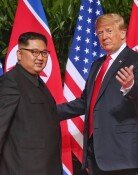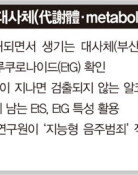Collapse of North Korean Economy Is More Dangerous than Its Nuclear Problem
Collapse of North Korean Economy Is More Dangerous than Its Nuclear Problem
Posted January. 16, 2003 23:31,
`The North Korean nuclear crisis is a economy problem, not a military problem.`
The recent issue of the weekly economy magazine Business Week Asian Edition (20th) pointed out that while the North Korean President Kim, Jung-Il was playing the hero of the world stage with nuclear program, and the diplomacy experts of each country were busy for military problems, the true nature was being overlooked.
This magazine explained the North Korean nuclear crisis like, North Korea, which has only weapons, illegal drugs, and counterfeits to export, is using the only mean she knows to cope with the serious economical crisis. Therefore, It is the only way to solve the nuclear threat effectively to improve the North Korean economy in certain degree, and the oppression policy in military, diplomacy, and economy will even stimulate North Korea in opposite direction, so it can bring a threat to the Korean Peninsular. And it also reported, The thing that the South Korean people fear about is not the nuclear but the sudden collapse of the North Korean economy.
The infant mortality rate of North Korea is three times that of South Korea, GNP is only 700 dollars. The former professor of the Kim, Il-Sung University Cho, Myung-Chul, who fled from North Korea in 1994 expressed the North Korean economy by saying, It is better for North Korea to fight a war than to extend this situation.
It is the current `economy policy` of North Korea to rocked the world with the `nuclear card` once in a while and get the most aids from the neighboring countries as much as possible. However, the experts predict that it is difficult to keep the current situation for more than 10 years.
If this reaches the limit, the next step is the collapse of North Korea. The Business Week predicted, The collapse can come from many different ways such as rapid increase of refuges from North Korea, military coup, or insurrection of the second power among the North Korean elite group, and If the collapse of North Korea is connected to the `sudden reunification` with South Korea, tens of billion dollars a year will be spent as reunification expenses, and the living standards of South Korea will suffer a relapse by 10%.
The desirable scenario that South Korea wants is that North Korea spreads gradual reform policies like using foreign aids in economy reform and accepting partial market economy. However, the Business Week reported, Although there are movements like abolishing the distribution system for few goods and introducing Special Economy District, the political uncertainty of North Korea makes the investment decision of foreign businesses, so the atmosphere is doubtful.
The Business Week stressed in conclusion, America must not exclude the President Kim, and present herself positively to a direct talk.
Seung-Jin Kim sarafina@donga.com
Headline News
- Medical school quotas expanded after 27 years by 1,509
- ‘Pension replacement rate of 44-45% is negotiable,’ says Lee Jae-myung
- 16 out of 20 food companies see cost ratio decrease in 1st quarter
- Oksana Chusovitina with 8 Olympics under her belt gets injured
- Real income effectively reduced amid inflation hikes







